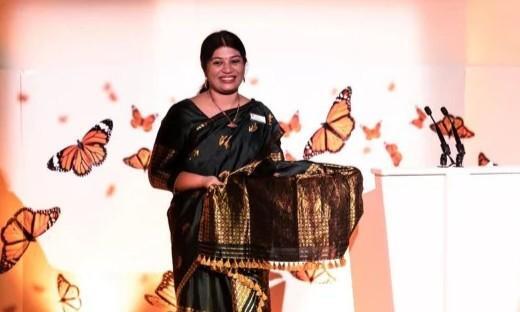
Who is Dr Purnima Barman, the only Indian woman among TIME’s Women of the Year 2025?
In a remarkable achievement, Dr Purnima Devi Barman, a wildlife biologist, has made history by becoming the only Indian woman to be featured on TIME’s Women of the Year 2025 list. This prestigious recognition is a testament to her tireless efforts to conserve the endangered greater adjutant stork, commonly known as the Hargila. Dr Barman’s dedication to protecting this species and its habitat has inspired a movement, and her work has far-reaching implications for the conservation of wildlife and ecosystems around the world.
The greater adjutant stork, a majestic bird species native to the Indian subcontinent, has been facing significant threats to its survival due to habitat loss, poaching, and other human activities. In response to this crisis, Dr Barman founded the ‘Hargila Army’, an all-women conservation group, to protect the species and its habitat. This pioneering initiative has not only helped to raise awareness about the importance of conservation but has also empowered women in rural communities to play a proactive role in protecting the environment.
Dr Barman’s journey to becoming a conservationist began in the 1990s, when she was just a teenager. Growing up in Assam, a state in northeastern India, she was fascinated by the natural world and spent much of her childhood exploring the forests and wetlands of her region. Her curiosity and passion for wildlife led her to pursue a degree in wildlife biology, and she went on to earn her Ph.D. from the prestigious Assam University.
After completing her education, Dr Barman began working with the World Wildlife Fund (WWF) and the Wildlife Institute of India (WII), where she was involved in various conservation projects focused on protecting endangered species and their habitats. However, it was her work with the greater adjutant stork that truly set her apart.
In the early 2000s, Dr Barman became aware of the alarming decline of the greater adjutant stork population in Assam. She was shocked to discover that the species was facing significant threats to its survival, including habitat loss, poaching, and the destruction of its nesting sites. Determined to make a difference, Dr Barman decided to take action and founded the ‘Hargila Army’, an all-women conservation group dedicated to protecting the species and its habitat.
The ‘Hargila Army’ was a groundbreaking initiative that not only brought together a team of dedicated conservationists but also empowered women in rural communities to play a proactive role in protecting the environment. Dr Barman recognized that women were often at the forefront of conservation efforts in rural areas, and she believed that by empowering them, she could create a more effective and sustainable conservation strategy.
Under Dr Barman’s leadership, the ‘Hargila Army’ has made significant progress in protecting the greater adjutant stork and its habitat. The group has worked tirelessly to monitor the species, identify threats to its survival, and develop effective conservation strategies. They have also worked with local communities to educate them about the importance of conservation and to engage them in the conservation process.
Dr Barman’s work with the ‘Hargila Army’ has not only helped to protect the greater adjutant stork but has also inspired a wider movement for conservation in India. Her commitment to empowering women in rural communities has created a new generation of conservationists who are passionate about protecting the environment.
TIME’s recognition of Dr Purnima Devi Barman as one of the Women of the Year 2025 is a testament to her tireless efforts to protect the greater adjutant stork and its habitat. This prestigious award is a recognition of her dedication to conservation and her commitment to empowering women in rural communities.
In conclusion, Dr Purnima Devi Barman’s achievement is a remarkable testament to the power of determination and commitment. Her work with the ‘Hargila Army’ has not only helped to protect the endangered greater adjutant stork but has also inspired a wider movement for conservation in India. As we celebrate her recognition as one of TIME’s Women of the Year 2025, we are reminded of the importance of empowering women in rural communities and the critical role they play in protecting the environment.
Source:






